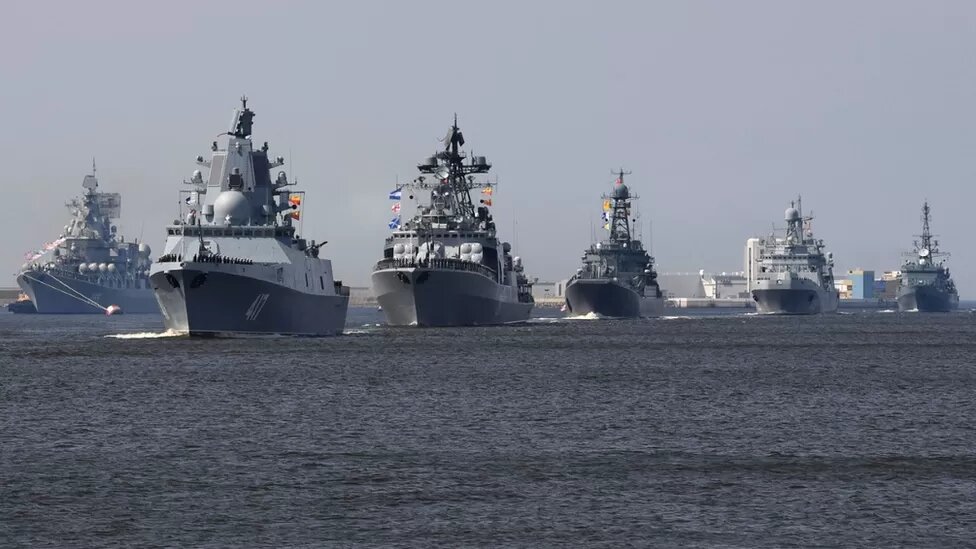South Africa was planning to start a joint naval exercise with Russia and China on Friday. This is something that South Africa says is normal, but it has led to criticism at home and fears that the drills will hurt important ties with Western countries.
World powers are fighting for power in Africa at a time when tensions around the world are getting worse because of the war in Ukraine and China’s increasingly aggressive behaviour towards Taiwan.
Some African countries refuse to pick a side because they want to get something out of the diplomatic tug-of-war. But analysts said that holding the 10-day Mosi II exercise on the same day that it has been a year since Russia invaded Ukraine is a risky move.
Steven Gruzd of the South African Institute of International Affairs said, “These exercises are going to be a lightning rod.”
South Africa says it takes a neutral position on the conflict in Ukraine. Last year, it didn’t vote on a U.N. resolution that criticised Russia.
It has responded to criticism by saying that it has done similar exercises with other countries, such as one with France in November.
Last month, South Africa’s defence ministry said, “Like any independent and sovereign state, South Africa has the right to conduct its foreign relations in line with its… national interests.”
But six diplomats from NATO or EU countries who were based in South Africa told Reuters that they were against the exercise.
One of them said, “It’s not right, and we told them we don’t like it.”
NOT WELCOME?
Russia’s actions have only made things worse.
It has sent out a frigate that is armed with the Zircon, a new type of hypersonic cruise missile.
President Vladimir Putin has called the weapon “unstoppable” because it can move faster than five times the speed of sound. This month, Russia’s TASS news agency said that the frigate would practise launching during the exercise.
Gruzd said, “I’m not sure South Africa knows how bad things could get.”
Russia’s Defense Ministry did not respond to a request for comment, and South Africa’s National Defense Force has denied the TASS report. People who don’t like Russia’s presence in South African waters are still angry, though.
Last weekend, the ship carrying the Zircon pulled into Cape Town. On its sides were the letters Z and V, which are used by Russia to promote the war in Ukraine.
The mayor of Cape Town, Geordin Hill-Lewis, said on Twitter that the ship was not welcome in the city because it was part of Russia’s evil war.
HISTORICAL TIES
The African National Congress is in charge of South Africa. It has long-standing ties to Moscow, which helped it fight against the racist apartheid regime, which many Western countries thought of as a Cold War ally.
Cobus van Staden of the China-Global South Project said, “Russia’s and, to a lesser extent, China’s position as anti-colonial allies still reverberates in much of Africa, even though others may see it as ancient history.”
As Russia and China try to build new international alliances, he said that history is coming to the forefront in Africa, where some countries want to find alternatives to Western hegemony.
South Africa, for example, is very proud to be part of the BRICS group with Russia, China, India, and Brazil, and it supports China’s plans to add more members and gain more power.
There is a chance, though, that Pretoria’s foreign policy goals will hurt its economic goals.
“Some companies have asked us if it’s still safe to do business with South Africa because they’re afraid of what might happen,” an ambassador from Europe told Reuters.
China is now Africa’s biggest trade partner, but the EU is by far South Africa’s biggest export market.
South African data shows that trade with the EU was worth about $53 billion last year, while trade with Russia was worth just over $750 million.
People in South Africa who don’t like how the government is trying to get closer to Russia and China say that the economy alone should be enough to make the government stop and think.
“It is a slap in the face of our trading partners to be so clearly on Russia’s side on the anniversary of the invasion,” said Kobus Marais, who runs the defence portfolio for the opposition Democratic Alliance.
